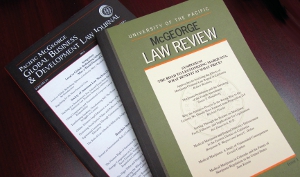Document Type
Article
Publication Date
2015
Abstract
When the Civil Rights Act of 1964 became law the Johnson Administration had ample reason to worry that Title II of the Act, forbidding racial discrimination in public accommodations, would meet widespread, even violent resistance in the Deep South. The Supreme Court upheld Title II’s constitutionality, based on the Commerce Clause of the Constitution. Despite pockets of resistance, within a few years of the passage of the Act, racial discrimination in public accommodations had become the exception, not the rule. While some problems remain, Title II has, on the whole, been remarkably successful. The melting of resistance to Title II can be contrasted with the persistent resistance to school desegregation, fair housing, fair employment, and equal voting rights. This paper examines the reasons for the success of title II and draws some lessons learned.
Publication Title
Hamline J. Pub. L. & Pol’y
Volume
36
First Page
1
Recommended Citation
Brian Landsberg's article, Public Accommodations and the Civil Rights Act of 1964: A Surprising Success? (36 Hamline J. Pub. L. & Pol'y 1),



